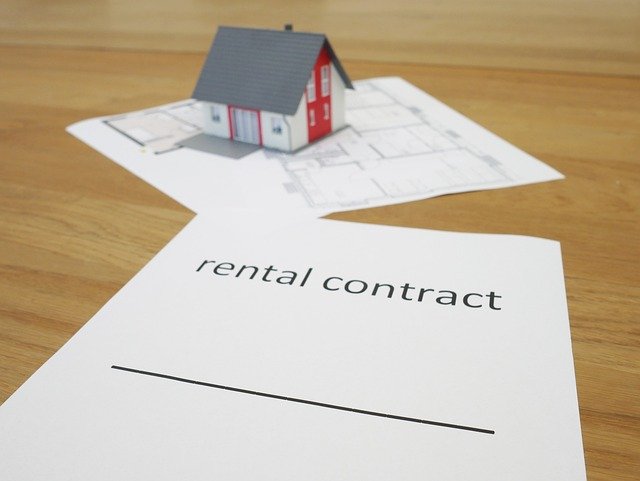What to Know About Apartment Rentals: A Practical Guide
Renting an apartment can be a straightforward process when you know what to expect. This guide covers key factors like lease terms, monthly costs, and what landlords may look for. Learn what influences rental decisions and how to explore options with confidence. Learn more inside.

What should I consider before starting my apartment search?
Before diving into your apartment hunt, it’s crucial to establish your priorities and budget. Consider factors such as location, proximity to work or school, access to public transportation, and neighborhood amenities. Create a list of must-haves and nice-to-haves to help narrow down your options. Additionally, determine your maximum monthly rent budget, keeping in mind that many landlords require tenants to earn 2-3 times the monthly rent. Don’t forget to factor in additional costs like utilities, parking, and pet fees when calculating your budget.
How do I navigate the apartment viewing process?
Once you’ve identified potential apartments, it’s time to schedule viewings. During these visits, pay close attention to the unit’s condition, including appliances, fixtures, and overall cleanliness. Take note of any existing damage and discuss it with the landlord or property manager. Don’t hesitate to ask questions about maintenance procedures, noise levels, and building policies. It’s also a good idea to visit the apartment at different times of day to get a sense of the neighborhood’s atmosphere and potential noise issues.
What should I know about lease terms and agreements?
Understanding lease terms is crucial when renting an apartment. A typical lease agreement will outline the rental period, monthly rent amount, security deposit, and any additional fees. Pay close attention to clauses regarding maintenance responsibilities, pet policies, and subletting rules. Some key terms to familiarize yourself with include:
-
Lease duration: Usually 12 months, but can vary
-
Security deposit: Typically one month’s rent, used to cover potential damages
-
Notice period: Required time for informing the landlord of your intent to move out
-
Rent due date and late fees
-
Maintenance and repair policies
Always read the lease carefully before signing and don’t hesitate to ask for clarification on any points you don’t understand.
How do I calculate the true cost of renting an apartment?
When budgeting for an apartment, it’s essential to consider all associated costs beyond just the monthly rent. Here’s a breakdown of potential expenses:
-
Monthly rent
-
Utilities (electricity, gas, water, trash)
-
Internet and cable
-
Parking fees
-
Pet rent or deposit
-
Renters insurance
-
Application and move-in fees
Some apartments may include certain utilities in the rent, while others require tenants to set up and pay for them separately. Always clarify which utilities are included and which are the tenant’s responsibility.
What do landlords typically look for in potential tenants?
Landlords and property managers often have specific criteria when evaluating potential tenants. In the United States, common requirements include:
-
Proof of income: Usually 2-3 times the monthly rent
-
Credit check: A good credit score demonstrates financial responsibility
-
Rental history: References from previous landlords
-
Employment verification: Steady employment is often preferred
-
Background check: To ensure the safety of other tenants and the property
Be prepared to provide necessary documentation, such as pay stubs, bank statements, and identification. Having these documents ready can streamline the application process and increase your chances of securing the apartment you want.
How can I make my apartment rental application stand out?
In competitive rental markets, it’s important to present yourself as an ideal tenant. Here are some tips to make your application stand out:
-
Submit a complete and error-free application
-
Provide all required documentation promptly
-
Write a brief personal statement introducing yourself and explaining why you’d be a great tenant
-
Offer to pay a few months’ rent in advance if possible
-
Consider having a co-signer if you have limited rental history or credit
-
Be responsive and communicative throughout the application process
Remember, first impressions matter. Dress professionally when meeting with landlords or property managers, and be punctual for appointments and viewings.
| Expense | Typical Range | Notes |
|---|---|---|
| Monthly Rent | $800 - $3000+ | Varies greatly by location and apartment size |
| Security Deposit | 1-2 months’ rent | Usually refundable if apartment is left in good condition |
| Application Fee | $25 - $100 | Non-refundable |
| Utilities | $100 - $300 | Depends on usage and which utilities are included in rent |
| Renters Insurance | $15 - $30 per month | Highly recommended to protect personal belongings |
| Parking | $0 - $300 per month | Free in some areas, can be expensive in cities |
| Pet Rent/Deposit | $200 - $500 deposit, $25 - $100 monthly pet rent | Varies by property, some may not allow pets |
Prices, rates, or cost estimates mentioned in this article are based on the latest available information but may change over time. Independent research is advised before making financial decisions.
Renting an apartment involves numerous considerations, from understanding lease terms to budgeting for all associated costs. By thoroughly researching your options, preparing necessary documentation, and presenting yourself as a responsible tenant, you can navigate the rental process with confidence. Remember to always read lease agreements carefully and don’t hesitate to ask questions before committing to a rental. With the right approach and preparation, you’ll be well-equipped to find the perfect apartment that meets your needs and budget.




